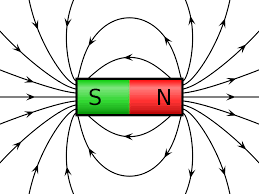Types of Energy
5th Grade – Physics – Swedish Education System
(In NO physic book 5th grade page 71)
|
|
Materials for the lessonPhase 4. The picture shows types of energy as example.Phase 5. A Picture from the NO Physic book for each student. |
Layout of the classroomPhase 1,2 and 4. The room setting is empty to move freelyPhase 3 and 5. Normal classroom settings. |
|
Phase 1The students stand in a circle holding hands. One student starts to squeeze the hand of the person standing to the right. That person then sends it forward squeezing the hand of the person to the right of him. When the person who started can feel a squeeze in his left hand it has gone full circle. |
|
Phase 2One student stands in the middle of the circle and closes her or his eyes. The teacher goes around making one student “starter” (by taping his/her shoulder) and one person “hindrance” (by double tapping his/her shoulder).The student in the middle is supposed to find the “hindrance” and “starter” in the energy flow. He or she opens their eyes and the “starter” starts the energy by squeezing the hand of person to the right or left, he/she continues and so on until they reach the “hindrance”. The “hindrance” sends the energy back to the “starter”. When the “starter” can feel the energy coming back he lets it pass and also sends new energy to the right or left. The exercise ends when pupil in the middle guessed who is the “starter” and “hindrance”.Then the person in the middle changes. |
|
Phase 3The teacher tells class about energy that’s flowing in the ecosystem. All organisms need energy flow. And almost all that energy originates from the sun. At the end the teacher asks the students about types of energy? The teacher writes all suggestions on the white board. |
|
Phase 4The teacher divides the whole class into 5 groups and gives for each group a type of energy.– Light– Heat– Chemical– Kinetic– ElectricalThe students create a story out of their daily life that they use one of the energy forms.Tips to the teacher: In lesson plan there is a picture that shows example for each type of energy that can help the students to think examples.Each group creates the story and then improvise to the rest of the class. Then whole class discuss these 5 types of energy. |
|
Phase 5The teacher brings a picture from the book for each student. The teacher asks the students to find types of energy on the picture. Then they discuss based on the examples from the picture and the students daily life. |


 SmartOWL
SmartOWL